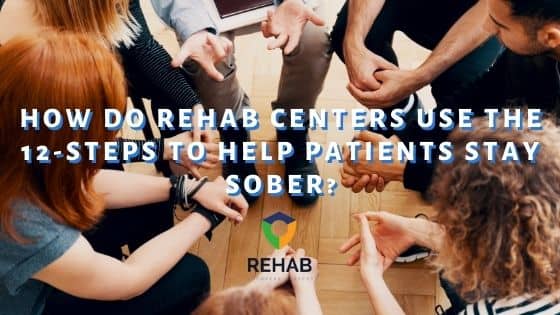Table of Contents
If you are one of the millions of people in the United States who live with substance abuse or addiction, you may understand some of the consequences and challenges the condition can bring. People who live with addiction often face severe harm to their health or safety. They may experience significant legal or financial trouble. Many people lose important relationships or face insurmountable relationship strain.
Addiction treatment is critical to recovery. Comprehensive treatment can help identify and heal the underlying causes of addiction and teach people the skills they need to avoid relapse in the future.
Addiction recovery is a lifelong process. Learning new ways to cope with challenges and expanding your support network is essential. For many, the period after treatment can be full of challenges. Some find that many aspects of their life–their relationships, their self-confidence, their sense of purpose–have changed dramatically.
The 12-step approach to recovery can help improve people’s ability to cope with challenges and provides a sense of community that is important. Understanding more about how 12-step facilitation therapy is used during substance abuse treatment programs may help you make informed decisions about your care.
What is 12-Step Facilitation Therapy?
Time has shown that 12-step rehab is effective at helping people recover from addiction and avoid relapse. For decades, people have trusted 12-step programs to help them navigate early sobriety. These types of programs are offered in a variety of settings, including rehab centers and in the community.
A 12-step rehab program asks people to work through progressive stages of addiction recovery. The 12 steps are:
- Admit that you are powerless over alcohol and that your life has become unmanageable.
- Believe that a greater power can restore you to sanity.
- Decide to turn your life over to a greater power.
- Make a searching and fearless self-inventory.
- Admit to a higher power, yourself, and another person the exact nature of your wrongs.
- Be ready to have a higher power remove your character deficits.
- Ask a higher power to remove your shortcomings.
- Make a list of people you harmed and be willing to make amends to them all.
- Make direct amends to people you harmed unless it would harm them or others to do so.
- Continue to take personal inventory and promptly admit when you are wrong.
- Seek prayer or meditation to bring you closer to your higher power, and pray for knowledge to carry out your higher power’s will for your life.
- After experiencing a spiritual awakening, share this with other alcoholics and live these principles in all you do.
The goal of the 12-step approach is to heal the whole person–not simply the physical aspects of addiction. 12-step facilitation therapy is offered in a group setting. This helps build a sense of community and creates a non-judgmental, supportive environment for people to do this critical work.
Many 12-step rehab programs also utilize the support of mentors or sponsors. Sponsors usually have worked through a 12-step program and can offer invaluable emotional and practical support to people new to sobriety.
How are the 12-Steps Incorporated Into Drug and Alcohol Rehab?
Addiction is not simply a physical condition. Instead, the complex roots of a person’s addiction must be identified and treated. Comprehensive substance abuse treatment programs use a combination of evidence-based and holistic treatments to provide the support and healing people need to recover from addiction. These include:
- Individual counseling
- Group therapy
- Education
- Medication management
- Family therapy
- Mental health treatments
- Holistic therapies like exercise, nutrition counseling, art therapy, and mindfulness practice
12-step facilitation therapy can be used during or after treatment to help people gain the skills to avoid relapse. During treatment, people may attend on-site 12-step meetings regularly. Or, some principles of the 12-step approach, such as admitting you are powerless or taking a personal inventory, may be integrated into individual or group therapy sessions.
12-step facilitation therapy must always be used alongside addiction treatment. These programs can be an invaluable source of support to people in recovery but are not a replacement for comprehensive substance abuse treatment.
Is 12-Step Rehab Right for Everyone?
When some people think of the 12-step approach, they may assume that people must be of the Christian faith to benefit from it. While the 12-step method is rooted in Christianity, it can be adapted to meet any person’s needs. People may identify their own higher power and find meaning in this type of treatment program regardless of spiritual beliefs.
For decades, millions of people around the world have used the 12 steps to help them heal from addiction and avoid relapse. This approach to addiction recovery can help people build a community, experience a sense of restoration, and foster new, healthy relationships.
Some rehab centers use the 12-Steps in their ideologies, but they don’t identify as a 12-Step rehab or force their patients go to 12-Step meetings. This allows individuals to choose the right path toward recovery for them.
Find Help Now
There are many options for substance abuse treatment, and if a 12-Step rehab isn’t right for you, we can help you find one that is. For more information about starting a substance abuse treatment program in your area, reach out to the specialists at Rehab Recovery Centers today.
References:
Get Help Today
Don’t go through the process of recovery alone. There are people who can help you with the struggle you’re facing. Get in touch with one today.


